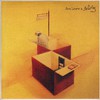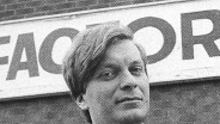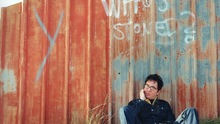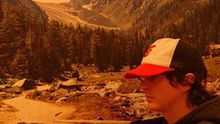As part of our week dedicated to solo artists, I corralled DiS writers past and present into sending me some words on one album by a singer-songwriter that has stood out for them over the last ten years. From Bill Callahan to Simon Joyner, Martin Grech to Neko Case, here lie their choices, each accompanied by some means of listening to the artists in question.
To open the article, some words from former editor of DiS, Mike Diver. Mike’s response to my call wasn’t exactly what I had hoped for – after all, I intended this piece to be a celebration of the humble singer-songwriter; something laudatory. But his thoughts offer a great jumping-off point for debate, a gauntlet thrown that the following words aim to make good on.
His are questions that I inadvertently answered (or at least, considered at length) earlier this week, in what effectively amounts to me stating the exact opposite. Oddly enough – or not, really – it was while toiling my way through that article a few days previously that I came up with the idea of getting something like this together. I love pieces like this – broad sweeps across a publication’s contributors – and although it’s not quite as broad as it could have been (blame Master’s dissertations, day jobs, weddings, interviews and a very tight deadline) I hope some of you will enjoy this one, too.
Mike Diver
Truth is, I rarely listen to artists best categorised as singer-songwriters. Sure, I have records in the collection that tick the prerequisite boxes: those by Elliott Smith, Sparklehorse (nearly counts, right?), Bill Callahan, Bob Dylan, Eels (again, right?), Ed Harcourt, etcetera. But do I return to them, time and time again, as one should their very favourites? Across the board, no.
So why contribute anything here? Simple answer, and it’s a question: what am I missing out on? I don’t think there’s ever been a singer-songwriter I’ve fallen for as fantastically as I have a group, or (more recently) solo work by artists operating in rather more innovative circles (the writing of these words is accompanied by the new Rustie EP). I’ve been enamoured by songs, by lines, by a temporary hush so beautifully frail that to linger too long upon it would shatter the illusion, the spell cast by the singer-songwriter in question. I’ve spent lonely nights in my late teens with only Electro-Shock Blues for company; but it’s not exactly the work of a singer-songwriter, by definition, seeing as it features a wealth of contributors. I really enjoy Jens Lekman, and Atlas Sound, and Björk. But I’m guessing none of them really fit the mould of artist this piece is intended to focus upon.
Basically, at this point in my life the notion of sitting down to listen to a man – and it’s usually a man, usually with a beard; at least it is in my mind – whimpering on about his heartbreak with only an acoustic and subtle percussion for backing is as appealing as peeling dead skin off a stranger’s corn-encrusted foot. I’d rather listen to Jay-Z over Jason Molina any day of the week. (I am sure this wasn’t always the case, but I forget when the switch occurred.) Which, presumably, means I am missing out on something fantastic – if not, why does this article even exist? Someone, set me straight on the path to singer-songwriter enlightenment.
Sam Lewis
Adrian Orange - Bitches Is Lord (2006)
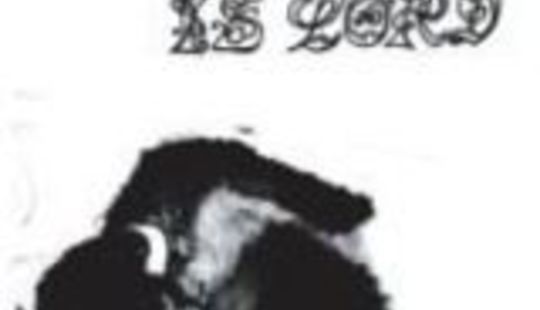 For me, Adrian Orange is the most under-rated songwriter of the last ten years or so. Still only 26, he has already released at least seven albums proper, with a host of other singles and CD-Rs. While most of his records are based around just himself and his guitar, it would be impossible to define him as a ‘folk’ artist. At his best, his music has a wild freedom to it, a kind of mad, percussive beauty that I haven’t found in any other songwriter. His voice is as unique as his vision, a baritone that manages to sound fragile and light. If I had to pick an overarching theme to his work, it would be the battle to learn to accept the world for what it is – that we die, that the world moves on without us, but that we can have an impact in spite of that. That idea permeates all of his best album, 2006’s Bitches Is Lord. But his music encompasses a whole range of subjects, and his most moving songs deal with relationships, like ‘Interdependence Dance’ with it’s sad refrain of “I have your phone number, but I don’t call it, I don’t know what I’d say”. Adrian’s music is both melancholy and hopeful at the same time, a paean to the wonder of the world, and the sadness of the passing of time. The power, eloquence and beauty of his work kicks the ass of 98% of all current bands and 99% of most ‘nu-folk’ artists, and I really believe everyone’s life would be enriched by listening to his music.
For me, Adrian Orange is the most under-rated songwriter of the last ten years or so. Still only 26, he has already released at least seven albums proper, with a host of other singles and CD-Rs. While most of his records are based around just himself and his guitar, it would be impossible to define him as a ‘folk’ artist. At his best, his music has a wild freedom to it, a kind of mad, percussive beauty that I haven’t found in any other songwriter. His voice is as unique as his vision, a baritone that manages to sound fragile and light. If I had to pick an overarching theme to his work, it would be the battle to learn to accept the world for what it is – that we die, that the world moves on without us, but that we can have an impact in spite of that. That idea permeates all of his best album, 2006’s Bitches Is Lord. But his music encompasses a whole range of subjects, and his most moving songs deal with relationships, like ‘Interdependence Dance’ with it’s sad refrain of “I have your phone number, but I don’t call it, I don’t know what I’d say”. Adrian’s music is both melancholy and hopeful at the same time, a paean to the wonder of the world, and the sadness of the passing of time. The power, eloquence and beauty of his work kicks the ass of 98% of all current bands and 99% of most ‘nu-folk’ artists, and I really believe everyone’s life would be enriched by listening to his music.
Here’s a strange but nice vid of Adrian covering ‘How Long Will It Take’ by Pat Kelly:
Daniel Ross
Bill Callahan - Sometimes I Wish We Were an Eagle (2009)
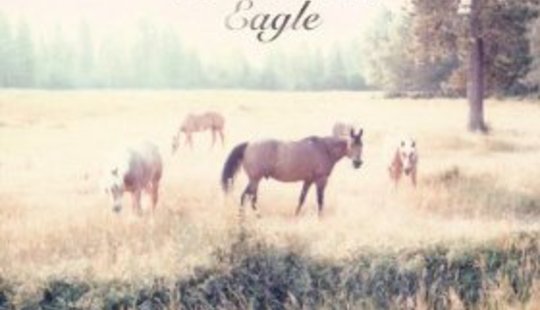 Bill Callahan's decision to drop his (Smog) moniker in 2007 was welcomed by most as something freeing in his song craft, something that would usher in a new period of possible experimentation. Happily, that turned out to be bunkum, and Callahan went about making albums that were merely extensions of the (Smog) tradition. More earnest, more cryptic and oceans deeper than before, Sometimes I Wish We Were an Eagle is, for me, the finest singer-songwriter record of the last ten years.
Bill Callahan's decision to drop his (Smog) moniker in 2007 was welcomed by most as something freeing in his song craft, something that would usher in a new period of possible experimentation. Happily, that turned out to be bunkum, and Callahan went about making albums that were merely extensions of the (Smog) tradition. More earnest, more cryptic and oceans deeper than before, Sometimes I Wish We Were an Eagle is, for me, the finest singer-songwriter record of the last ten years.
Opener ‘Jim Cain’ tackles in one sentence the career that critics have stumbled in defining: “I used to be darker… then I got lighter. Then I got dark again…” all the while flanked by Bernard Herrmann-indebted horns and strings. ‘My Friend’ sees Callahan erupting into triumphant/terrifying growls of the title over the simplest of revolving backings. Most interestingly, though, ‘All Thoughts Are Prey to Some Beast’ shows his inimitable baritone climbing high to its very limits amid his now-customary bird references (“being sky-king of the sky, what did he have to fear?”), before threatening to explode several times in a flurry of drums and shrieking violins. It's a journey of a record, to say the least, and one that culminates in a ten-minute meditation on religion, ‘Faith/Void’, which deals so gently with the subject that you'd be forgiven for thinking it was flippant. It’s not, it’s merely effortless.
There are several more delicious highlights that demonstrate exactly why I think this release is premier among singer-songwriter LPs of the last decade, but the best way to discover that is simply to listen, and let Callahan himself show you why.
Kevin EG Perry
Jeffrey & Jack Lewis - City & Eastern Songs (2005)
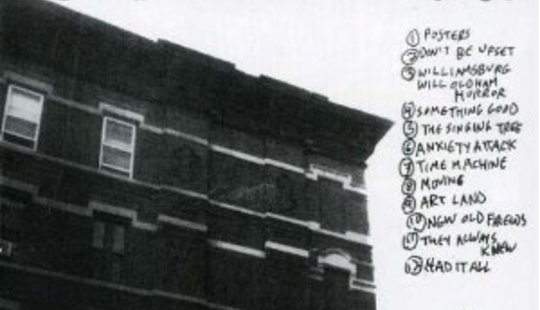 Jeffrey Lewis is singing ‘Williamsburg Will Oldham Horror’ and I’m struggling to keep up with all these words that are just pouring out of him and I want to be able to read them as he sings them or maybe try to write them down because I keep hearing these snatches of ideas and it’s like being at a party and it’s late and you’re half drunk and people are falling asleep around you but you’re sat there with your best friend and the music’s quiet now and you’re talking about things about life about dreams about hope that you can’t say during the day because no one ever says the capital-T Truth during daylight hours except for maybe Jeffrey Lewis because no one ever says the Truth quite like Jeffrey Lewis and sometimes it hurts because it’s too close too True because you started off talking about ‘Moving’ your stuff out of your old flat but now you’re talking about death and you’ve got that feel in your chest, that feel you get when you get your ‘Anxiety Attack’ but it’s okay because you’re with your best friend and he’s being funny and talking about how he has to tell his girlfriend ‘Don’t Be Upset’ and you’re smiling now and laughing with him and the sun’s nearly up and you think that today is going to be a day when you’re going to do ‘Something Good’ and that is all that I can tell you about City & Eastern Songs.
Jeffrey Lewis is singing ‘Williamsburg Will Oldham Horror’ and I’m struggling to keep up with all these words that are just pouring out of him and I want to be able to read them as he sings them or maybe try to write them down because I keep hearing these snatches of ideas and it’s like being at a party and it’s late and you’re half drunk and people are falling asleep around you but you’re sat there with your best friend and the music’s quiet now and you’re talking about things about life about dreams about hope that you can’t say during the day because no one ever says the capital-T Truth during daylight hours except for maybe Jeffrey Lewis because no one ever says the Truth quite like Jeffrey Lewis and sometimes it hurts because it’s too close too True because you started off talking about ‘Moving’ your stuff out of your old flat but now you’re talking about death and you’ve got that feel in your chest, that feel you get when you get your ‘Anxiety Attack’ but it’s okay because you’re with your best friend and he’s being funny and talking about how he has to tell his girlfriend ‘Don’t Be Upset’ and you’re smiling now and laughing with him and the sun’s nearly up and you think that today is going to be a day when you’re going to do ‘Something Good’ and that is all that I can tell you about City & Eastern Songs.
Andrzej Lukowski
Neko Case - Blacklisted (2002)
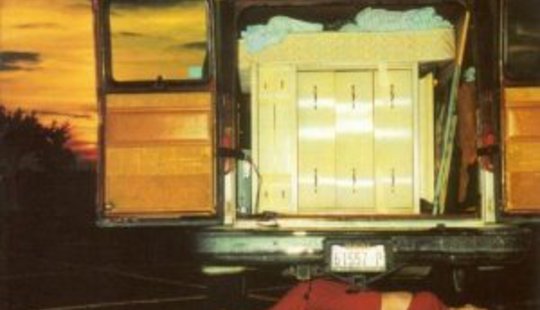 Like most worthwhile solo artists, ‘Neko Case’ is not one person, but a much wider musical entity, one that tends to include the likes of Howe Gelb, Kelly Hogan, Mary Margaret O'Hara, Joey Burns, John Convertino, Dallas Good, Garth Hudson and sundry other alt.country luminaries; much as Case is the driving force behind the music produced under her name, it’d be daft to think the lustrous American gothic of her two masterpieces - Blacklisted and Fox Confessor Brings the Flood - could possibly be achieved by one woman and a geetar. But there is one thing that this Virginia-born songstress definitely, crucially brings to her own records, and that is a voice that can only really be described by means of a series of crap similes that I am now going to share with you.
Like most worthwhile solo artists, ‘Neko Case’ is not one person, but a much wider musical entity, one that tends to include the likes of Howe Gelb, Kelly Hogan, Mary Margaret O'Hara, Joey Burns, John Convertino, Dallas Good, Garth Hudson and sundry other alt.country luminaries; much as Case is the driving force behind the music produced under her name, it’d be daft to think the lustrous American gothic of her two masterpieces - Blacklisted and Fox Confessor Brings the Flood - could possibly be achieved by one woman and a geetar. But there is one thing that this Virginia-born songstress definitely, crucially brings to her own records, and that is a voice that can only really be described by means of a series of crap similes that I am now going to share with you.
It’s like bells tolling at night. It’s like being buried in red dirt. It’s scorched earth and starlight and murder and suffocation and rust and blood and molten bronze and lots of other images clearly subliminally influenced by the fact she has red hair. I dunno… I guess she sounds like a country artist, somebody like Loretta Lynn, if you just ripped away the technique and mannerisms and everything but the elemental essence and spun it back out, dark, low and ominous. She is, by-the-by, a superb lyricist, but when the voice gets fully enmeshed in the blasted country noir guts of a song like of ‘Ghost Wiring’, ‘Deep Red Bells’ or ‘Things That Scare Me’, it all goes rather further than words. She is also in The New Pornographers, which is pretty bitchin’.
Ghost Wiring from Andrew McCalman on Vimeo.
Luke Slater
Simon Joyner - Out Into the Snow (2009)
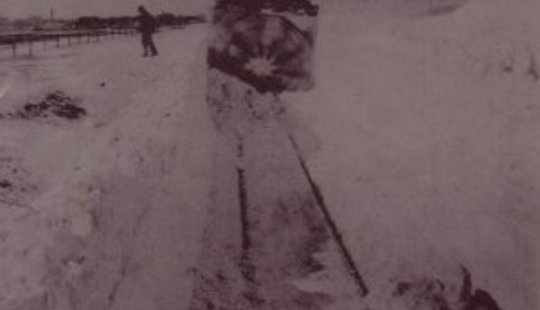 It is not that Out Into the Snow is Simon Joyner’s most accomplished and best record, although arguably it is. It is more that what we have in these eight songs sums up the man as a recording artist, while also marking his progression from a solitary, literary strummer – who would hit notes rarely but with real emotion – to something greater. Those little-heard early records were not so much rough edges as they were covered entirely in sandpaper (Iffy in particular), yet they inspired many, notably a certain Conor Oberst.
It is not that Out Into the Snow is Simon Joyner’s most accomplished and best record, although arguably it is. It is more that what we have in these eight songs sums up the man as a recording artist, while also marking his progression from a solitary, literary strummer – who would hit notes rarely but with real emotion – to something greater. Those little-heard early records were not so much rough edges as they were covered entirely in sandpaper (Iffy in particular), yet they inspired many, notably a certain Conor Oberst.
Released at the very end of the decade, Out Into the Snow contains as much orchestration as ever but remains unmistakably Joyner, perhaps because of the evolution over the years rather than despite it. The record contains many of his characteristically long, drawn-out folk songs; the opening track is a swaying, ebbing and flowing nine minutes thirty-one. Epic, some might say. The recurring theme of Sara – not a singular person, I’ll add – is there, too, another trademark of Joyner’s.
While it lacks the abrasiveness that is such an enjoyable part of his repertoire, it feels like he finally made the complete, total record that he’d threatened his whole career (it helps that he hits almost every note bang-on, too). A bold statement though it is, there would be no singer-songwriters not proud to have written any of these marvellous songs.
Simon Jay Catling
Martin Grech - March of the Lonely (2007)
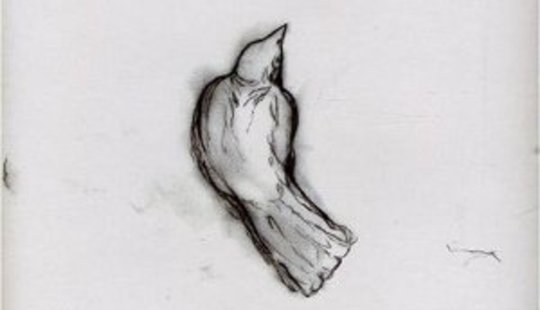 Before Martin Grech left for California, embittered and disenfranchised by the music world that had initially adored him, he left us this. Recorded with an acoustic guitar in a chapel situated on the River Blackwater’s isolated Oshea Island, March of the Lonely marked an understated signing off point before the still-young Grech left these shores for a life of anonymity - the final step of a withdrawal from the limelight that had blinded him in the wake of Open Heart Zoo’s unexpected 2002 success.
Before Martin Grech left for California, embittered and disenfranchised by the music world that had initially adored him, he left us this. Recorded with an acoustic guitar in a chapel situated on the River Blackwater’s isolated Oshea Island, March of the Lonely marked an understated signing off point before the still-young Grech left these shores for a life of anonymity - the final step of a withdrawal from the limelight that had blinded him in the wake of Open Heart Zoo’s unexpected 2002 success.
There’s always been a mysticism and allusion to Grech’s recorded output; he became a character of doom in both Open Heart Zoo and Unholy, prophesising and overseeing their apocalyptic darkness. There, however, he hid behind the songs’ sheer scale. Here he stripped that all away to reveal himself; fragile and painfully aware of our collective mortality. Yet this time it was accompanied by acceptance – right from the opening track ‘Treasure’ and its statement that “every second counts because it’s never coming back.”
The songs on March of the Lonely bleed solitude, built on simple ideas potently conveyed: the passing of the guard between father and son on ‘The Heritage’; the prologue to life’s end of ‘Ruins’; the cyclical nature of ‘The Giving Hands’; all delivered in a bewitching vocal by a man who’d had time to clarify his thoughts and emotions. That’s what this album was for Grech: clarification, and if he never returns to make music again, then this stands as one of the finest final chapters of the last decade.
Dom Gourlay
Cheval Sombre - Cheval Sombre (2009)
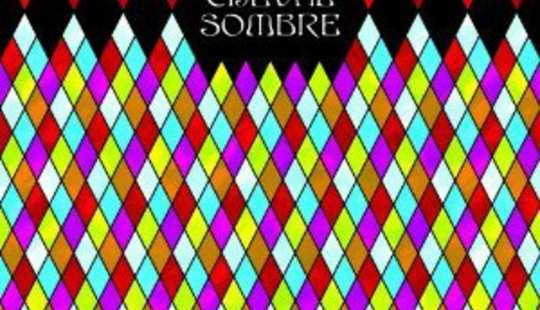 As possibly the last person you’d expect to declare anything more than a passing interest in singer/songwriters - blame James Blunt and the never-ending conveyor belt of Florences, Ellies et al - there was one hidden gem that immediately sprang to mind.
As possibly the last person you’d expect to declare anything more than a passing interest in singer/songwriters - blame James Blunt and the never-ending conveyor belt of Florences, Ellies et al - there was one hidden gem that immediately sprang to mind.
New York based Cheval Sombre (Christopher Porpora to his family and friends) first came to my attention via blogs on former Spacemen 3 mainman Sonic Boom’s website. His trippy, semi-acoustic paeans to broken relationships and unrequited love bordered on the psychedelic in terms of romantically emphasised comedowns while still retaining a unique style and sound of his own that no one has repeated since. Although his self-titled debut only saw the light of day in the early part of 2009, Cheval Sombre has been crafting his wares since the advent of the millennium, falling somewhere in between the mesmeric ethereal haze of shoegaze and the intrinsic soul bearing of modern day folk. More to the point however, is the fact that his approach to songwriting and communicating his thoughts via the medium of music are as far removed from the traditional singer/songwriters of this or any previous generation as you’re likely to hear.
Cheval Sombre – not so much a dark horse but more of a brave lion roaring against the cackles of mediocrity that surround him.
Al Denney
Perfume Genius - Learning (2010)
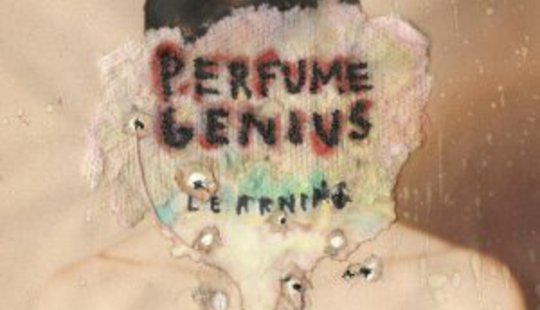 There are many reasons why you need Perfume Genius’ debut Learning in your life, but for now we’ll content ourselves with this: you absolutely will not find a better lyrical passage - this year, or any - than the one which furnishes ‘Mr Petersen’ with its heart-stopping climax:
There are many reasons why you need Perfume Genius’ debut Learning in your life, but for now we’ll content ourselves with this: you absolutely will not find a better lyrical passage - this year, or any - than the one which furnishes ‘Mr Petersen’ with its heart-stopping climax:
He made me a tape of Joy Division
He told me there was part of him missing
When I was sixteen, he jumped off a building
Mr Petersen, I know you were ready to go
I hope there’s room for you up above, or down below
The story of a schoolboy’s questionable relationship with a teacher who subsequently commits suicide, the words here represent a tour-de-force of smart simplicity; a lesson to the dullards that now litter the singer-songwriter’s landscape with their ritualised neediness and GCSE student’s feel for the wondrous gift of metaphor.
It’s a great, great moment, but by no means unique - Learning is a frequently shocking canvas filled with brave, intuitive strokes that draw heavily for lyrical content on the troubled history of one Mike Hadreas, a 26-year-old department store attendant prone to bursting into tears while doing the washing up.
Moving back to his mother’s home in Everett, Washington after a stint in New York found him flirting with personal disaster, the previously self-conscious Hadreas suddenly found himself able to face down his demons and write through his pain: “Something cracked. I didn’t give a fuck anymore and I had this really clear idea of what I wanted to say, regardless of how it sounded.”
Mixing broadly hymnal stabs of piano and grief-stricken synths, Perfume Genius’ music comes off like an inspired mix of Daniel Johnston and Atlas Sound without the trick-bag of FX, but it’s Hadreas’ bare-bones approach to storytelling and insistence on beauty in this cruellest of all possible worlds that lingers longest. A work of demolishing beauty.





